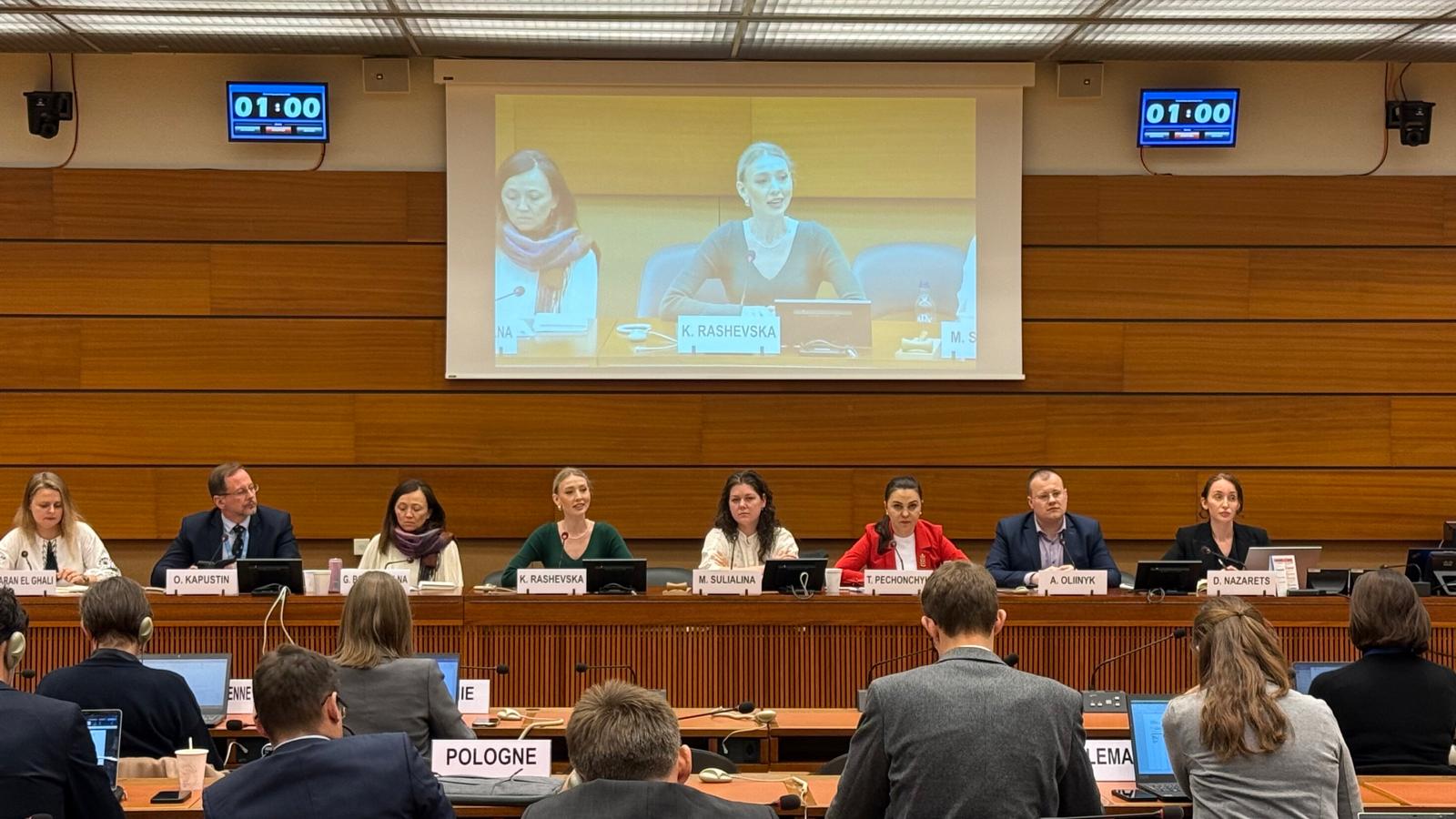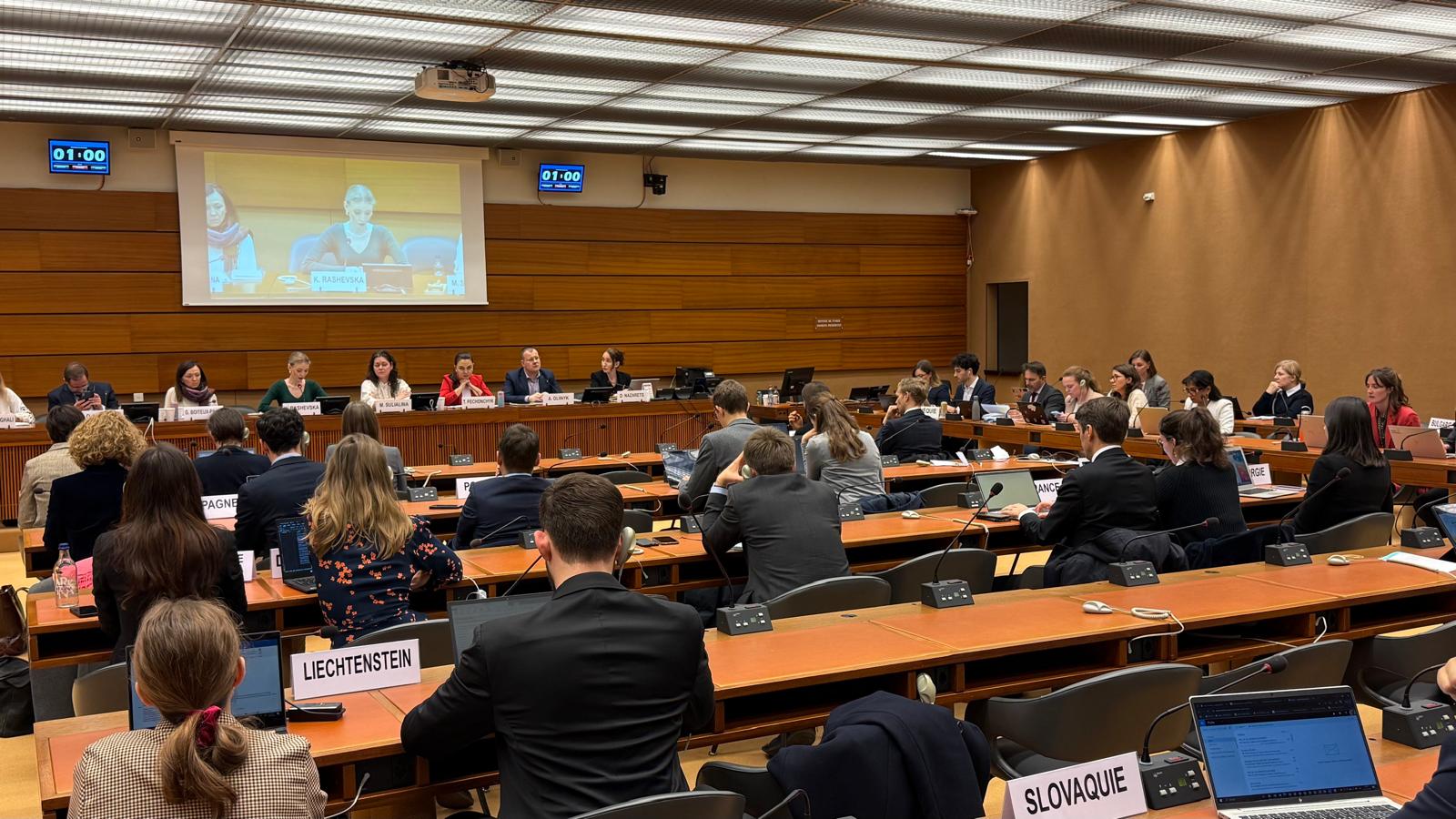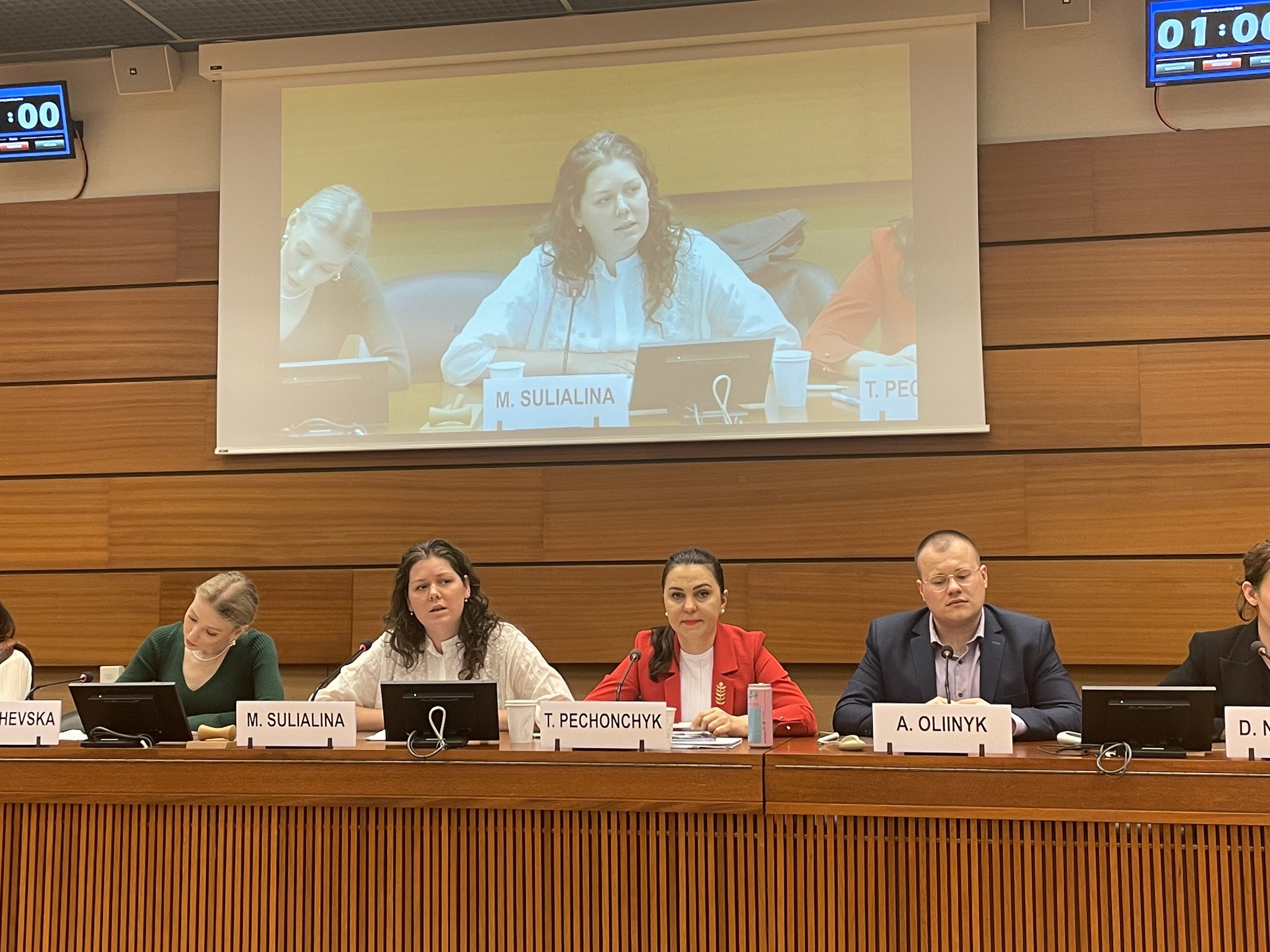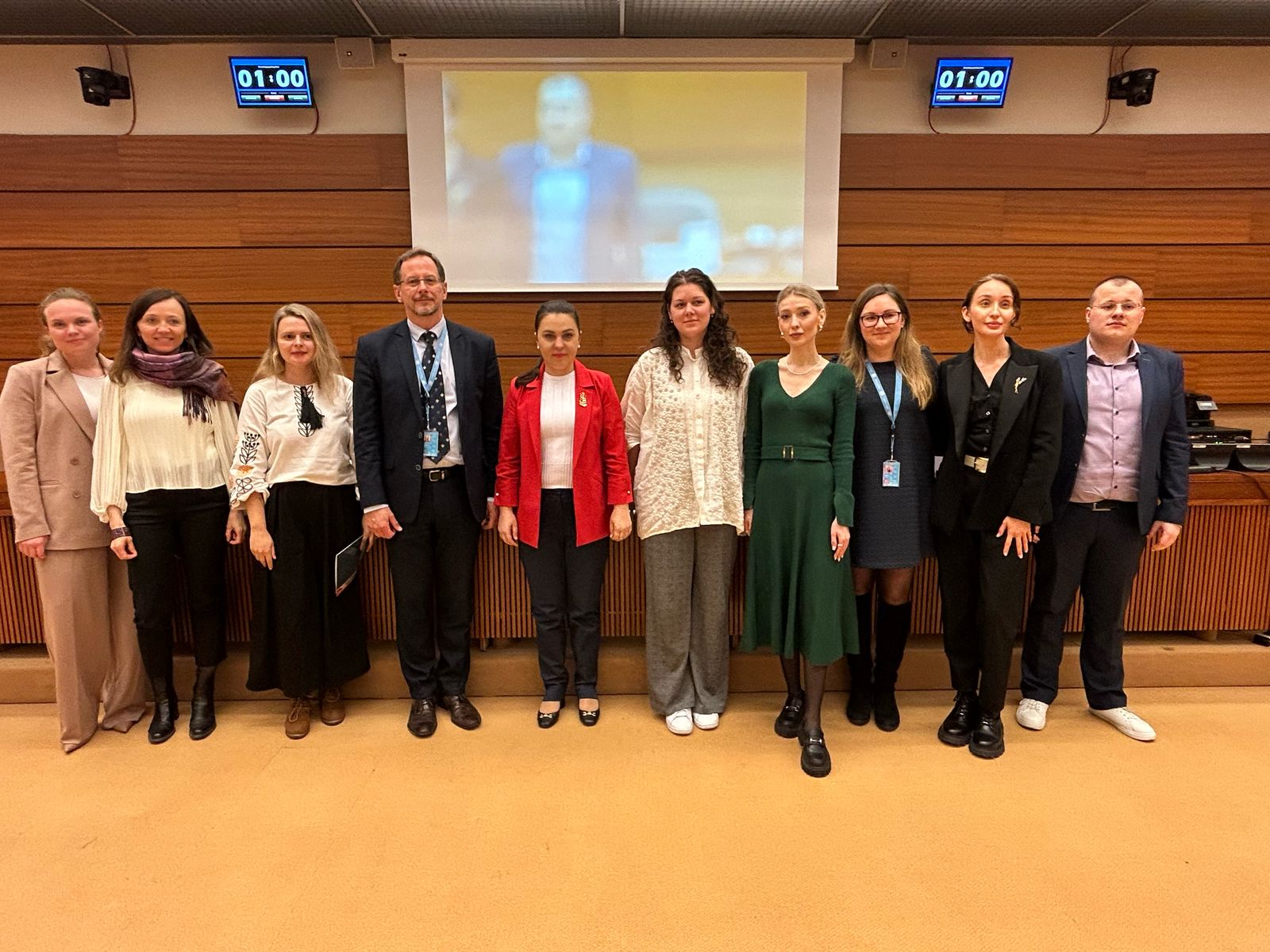How Russia has been organising repressions in Crimea for 11 years: human rights defenders provided testimonies at an event in Geneva
ZMINA joined the event “11 Years of Systemic Human Rights Violations in Temporarily Occupied Crimea: What Can International Mechanisms Do?”, which was held in Geneva on 19 March as part of the 58th session of the UN Human Rights Council.

During the side event, human rights defenders spoke about the latest trends and developments in the Crimean peninsula, including enforced disappearances, illegal arrests, torture, fabricated charges of “extremism” and “terrorism”, persecution for anti-war and pro-Ukrainian views, threats to freedom of religion, systematic indoctrination and militarisation of children.
Representatives of the member organisations of the Human Rights House “Crimea” made short presentations: Iryna Baran-El-Hali of the Crimean Human Rights Group, Mariia Sulialina of the Centre of civil education “Almenda”, Kateryna Rashevska of the Regional Center for Human Rights, Tetiana Pechonchyk of the Human Rights Centre ZMINA, and Artem Oliinyk of CrimeaSOS.
The event was moderated by Diana Nazarets of the Institute for Human Rights, and welcoming remarks were made by the missions of Ukraine and the Czech Republic.

Tetiana Pechonchyk, the Head of the Human Rights Centre ZMINA, told the present diplomats about the oppression of freedom of speech and the persecution of lawyers, human rights defenders and activists in Crimea.
“Since the beginning of the occupation of Crimea, one of the first steps was to eliminate independent media. In the first year, their number was reduced by 88%. For a long time, Russian special services have been fighting against freelancers and citizen journalists, including abductions, torture and fabrication of criminal cases, as it was in the cases of Vladyslav Yesypenko or Iryna Danylovych,” she said.
According to her, a total of 18 Crimean journalists are currently behind bars, most of whom are Crimean Tatar citizen journalists and members of the Crimean Solidarity initiative.
The human rights defender spoke about the increased pressure on independent media in Crimea after the start of the full-scale invasion, a vivid example of which is the persecution of the Qirim newspaper for publishing the UN Secretary-General’s speech on the situation of human rights violations in occupied Crimea.

“Russian security forces conducted searches and detained the editor-in-chief and founder of the publication, seized several computers in the editorial office and imposed six fines totalling about 8,000 euros,” she said.
Pechonchyk stated that censorship is intensifying in the context of the total ban on Ukrainian websites, Facebook and Instagram, as well as the blocking of VPN services, which is why there is a noticeable information vacuum of alternative sources of information to Russian propaganda in the occupied territory.
She also informed the audience about the increasing pressure on independent lawyers in Crimea; noting that, of the 12 lawyers who were constantly involved in politically motivated proceedings, four were deprived of their licences, four were subjected to administrative arrests, three to detention and administrative fines, and one was subjected to criminal prosecution.
“All of this has led to a significant drop in information on the status of certain processes and has also significantly limited the ability of new victims to obtain quality protection of their rights,” she added.

According to Pechonchyk, not only lawyers, but also Crimean activists and human rights defenders have been subjected to more pressure. For example, Abdureshyt Dzhepparov was subjected to administrative arrests and fines twice, representatives of the Crimean Solidarity human rights association Lutfiie Zudiieva and Lilia Hemedzhy were attacked, and several unjustified searches were conducted in the homes of many representatives of the Crimean Tatar national movement.
The human rights defender called for increased pressure on the Russian Federation to release Crimean political prisoners, including journalists and human rights defenders, and to provide ongoing support to those who are trying to protect human rights and report the truth about the events in the occupation.
If you have found a spelling error, please, notify us by selecting that text and pressing Ctrl+Enter.















